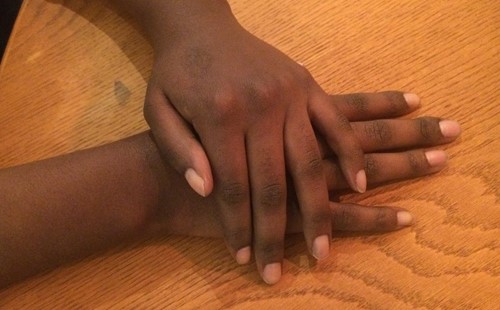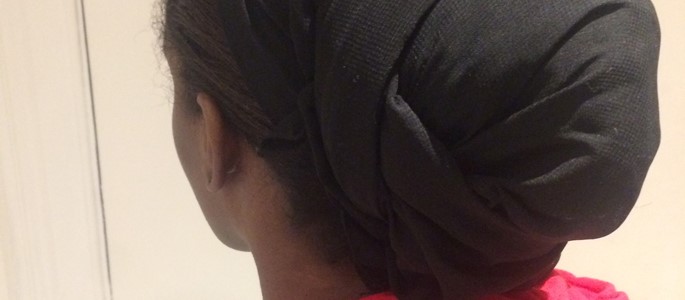Rescued from re-education in Somalia
Samira was held prisoner by her own family and would never have made it back without help from Refugees Welcome
INFO
Every year, an unknown number of children and youths are sent from Denmark to their parents’ homelands for long stays, against their will. The parents believe that the youths have become ‘too Danish’ and forced marriages often feature as part of the plan. However, if you don’t have Danish citizenship and stay outside of Denmark for more than one year without having been granted special permission to do so, you can lose your residency permit. Thus, it can be very difficult for the young to return to Denmark, despite the fact that they have grown up here. The government has earmarked funds for a concerted endeavour against social control – including the act of being sent out of the country for re-education. In practice, however, it can be difficult for the individual to access help, as Samira’s case demonstrates.
In April, Refugees Welcome received a message on Facebook, “One of my previous students is being held prisoner in Somalia by her own family. Can you help her come back to Denmark?”. This marked the start of a long and intense process, and five months later, Samira landed back in Kastrup (Copenhagen) Airport.
The case garnered so much attention at the Immigration Service and the embassy in Ethiopia, that Inger Støjberg requested a personal meeting with Samira and her volunteer case worker from Refugees Welcome. The Minister wanted to hear how the authorities could, in the future, better help other young people in the same situation. The meeting lasted for two hours, where Samira told how she would never have made it out if it hadn’t been for Refugees Welcome – and that she had met many others in Somalia, who were in the same situation. Not just from Denmark, but also from other western countries.
Samira is not her real name and elements of her story that could lead to her identification have been changed. Today, she is 22 years old and residing temporarily at a secure and secret residence. The police will help her with a new identity. It would be extremely dangerous for her, if her family were to locate her. In Denmark, she has just two friends today, whom she feels she can trust.
A hard upbringing
Samira came to Denmark in 2001 as a five-year-old, together with her father and five siblings. Her step-mother had already been granted asylum. From the moment Samira arrived in Denmark, the thing she remembers most is being afraid. Afraid of dogs, doctors and of the other children in kindergarten and school.
In the small village, where they were first placed, she was bullied by the Danish children. When the family moved into a housing project in a larger town, it was the other Somali and Muslim immigrants, who exercised strict social control over girls who weren’t seen to behave. And Samira was one of those. From the age of about 9, she hung out with 13-year-olds and began to smoke – first cigarettes and, later, joints. When she turned 15, she moved on to harder drugs and dropped out of school without taking her final exams.
Samira’s step-mother had little interest in her and the other step-children but spoiled her own two children. Her father was violent and controlling without providing any form of care or support. After a period of 4-5 years with no contact, her biological mother appeared on a visit with a visa, but she was solely bent on destroying the father’s relationship with his new wife.
Eventually, Samira was removed from the home and placed at a youth residential centre. The strict rules at the centre weren’t what she needed at the time. Later, she was given a place in youth housing, where she was entirely without supervision – so she just drew down her benefits and ran amok with partying and drug abuse. Her best friend was a Danish girl, who also had an equally unhappy background.
“It’s actually first now that it all hits me, really. I wasted all those years with drink and drugs. Why didn’t anyone notice what was going on until it was too late?”, says Samira now. Only one teacher, during her third grade at school, was kind to her and paid attention, noticing that something was wrong in the home and making an effort to talk about it. All of the subsequent teachers merely saw her as the tough girl, who gave back-chat.
One day, Samira was away from the family for a long time, without telling them where she was. When she finally returned, she was beaten by the father and older brother. She fled from the apartment and rang the police.

Imprisoned by her own mother
Sometime after, her older brother apologised and convinced her to travel to Somalia with him to visit their mother. She had never before set foot in Somalia. When they arrived, she quickly realised that it was a trap. After two months, she wanted to return to Denmark to apply for permanent residency but her mother said that she had become too Danish. Now, she would have to stay in Somalia and marry the man they had chosen for her.
Samira became furious and threw things in anger. Her mother called for a friend who bound and beat her. He locked himself in a room with her and subjected her to sexual assault. The man said, “If Danish men can touch you, why not your own people?”. Afterwards, her mother said that she had just shouted and screamed to get attention.
The man Samira’s family had chosen for her, was almost ten years older than her. But he turned out to be kind and tried to help her a little. However, his courage didn’t extend to going against her family or doing anything active for her. But Samira was smart. She spoke loudly about all the men she had been with in Denmark and in the end, the wedding was cancelled as the in-laws weren’t interested in that dirty girl from Denmark.
Samira’s mother destroyed her passport and took her mobile phone. Luckily, she had managed to hide her Danish residency card just in time. After a year, she got her phone back, and both rang and wrote to the nearest Danish embassy, asking for help to get back to Denmark. She also sent photographs as proof of the violence she had been subjected to. She received no reply.
So, she then wrote to the people in Denmark, whom she thought might want to help her – including a former employee at the home where she had stayed. It was her, who contacted Refugees Welcome, where the volunteer social worker, Natascha Panduro Gad took responsibility for the case. This got things moving.
Third attempt at escape was a success
During the weeks that followed, via Messenger, Samira managed to sign a power of attorney and send photographs of all the documentation she could gather to prove her identity and the involuntary nature of her stay. However, it was difficult and risky to find a printer for the power of attorney, and to find times when she could speak on the telephone unobserved. Once, it went wrong: her mother discovered a conversation and a cousin wrote to Natascha from Refugees Welcome from Samira’s telephone, warning her to keep her distance! It then went quiet for a long time, until Samira managed to acquire another, secret telephone.
At one point, she ran away from the house and hid herself at a friend’s house for two days. But she didn’t want to risk exposing her friend’s family by being found there, so she gave up and returned home – and was locked up. The next time, she sought refuge in a friend’s shop but when Samira’s mother phoned and laid some pressure on him, he admitted that she was there. And of course, she was punished: harsh blows with a rod.
The third time, she never turned back. Natascha had gotten Samira’s residency permit reinstated by the Immigration Service - she had lost it due to being too long outside of the country. But she needed to collect it at a Danish embassy, of which there is none in Somalia. Therefore, she needed to find a way into the neighbouring country of Ethiopia.
Refugees Welcome transferred money to Samira (which Natascha had to do at a questionable establishment in Nørrebro) and Samira travelled 15 hours by bus to a larger town. Here, she happened to meet a man who had also once been sent for re-education and who wanted to help. In order to be allowed to enter Ethiopia, she must first have a Somali identity card, which cost money, both for fees and bribes.
Survived a bus crash
Samira must now continue towards the Ethiopian border in a bus. However, as if the problems with getting back to Denmark weren’t enough in and of themselves, the bus she was travelling in crashed and went out over an incline. Several of the passengers died, including a five-year-old boy, who landed on top of Samira. All of the survivors were brought to hospital but Samira hurried away again – she had neither the time, nor the money, to lie in hospital.
Once she finally made it to Ethiopia, it was smooth sailing from there. The Danish embassy sorted everything within a few days and with more money from Natascha, she bought a flight ticket. When she landed for her connecting flight in Frankfurt, she was so giddy that she used the last of her savings on lace underwear from Victoria’s Secret and a slice of cheesecake. After five months of struggling, the two women finally got to meet in reality and exchange hugs in Kastrup!
It took several days to find a crisis centre that could take her in. In the end, she found a place and is now living at a secure residence for victims of violence and attending a production school. She still only has the clothes she has been given by the crisis centre and Natascha. Her plans for the future involve taking her 9th grade exam. She wants to be a social worker. Today, when sitting opposite the calm and polite Samira, you can’t see the childhood with abuse, violence and neglect that she has been through. But it has exacted its price. She has now just two friends that she trusts. Her little brother, whom she always sought to take care of during their childhood, is now 19 and having an extremely hard time. He is the only one of her many siblings, who is still in Denmark today. She doesn’t dare make contact with him.
.
By supporting Refugees Welcome you make sure that we can help others in Samira's situation


